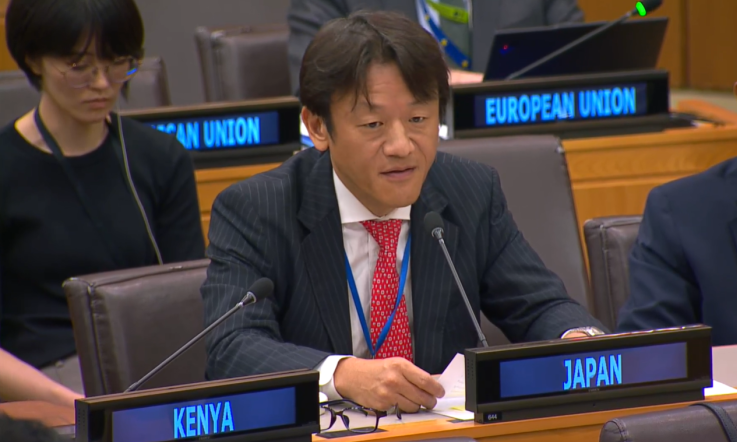Statement by Mr. IRIYA Takayuki, Minister for Political Affairs, Permanent Mission of Japan to the United Nations, at the Peacebuilding Commission (PBC) Ambassadorial-level meeting on South-South and Triangular Cooperation
2025/7/29

(As delivered)
Thank you, Mr. Chair.
Japan welcomes the convening of this PBC meeting on South-South and Triangular Cooperation (SSTC) and extends sincere appreciation to the briefers for their valuable contributions.
In 1954, while still in the midst of post-war reconstruction and receiving development assistance from the international community, Japan joined the Colombo Plan and began its overseas technical assistance to Asian partner countries through accepting trainees and dispatching experts, which can be regarded as an early example of SSTC. Today, Japan continues to uphold this legacy through meaningful triangular cooperation including the facilitation of the sharing of demining expertise.
To reaffirm the critical value of SSTC and to support its deeper integration into peacebuilding efforts, let me emphasize the following two points.
First, SSTC offers a pathway to mobilize a wider array of actors beyond the conventional North-South Cooperation framework. Countries that have endured conflict possess unique and practical experience in recovering from conflict and preventing conflict relapse. By leveraging their insights through SSTC, we can deliver more targeted, effective, and sustainable peacebuilding support. Although it is not a substitute for North-South Cooperation, in the face of global fiscal challenges and shrinking resources for peacebuilding, SSTC promotes effective multilateral peacebuilding efforts, including through the expansion of the donor base.
Second, Japan believes that the PBC’s convening power should be further harnessed to promote SSTC. The PBC can serve as a useful platform for countries affected by conflict—past and present—to share lessons and good practices for peer learning and seeking solutions collaboratively. By expanding the thematic and geographic scope of its agenda, the PBC can advance SSTC even more, enhancing the inclusivity and impact of such efforts. To this end, it is essential to encourage broader participation in the PBC by increasing its visibility and awareness through consistent collaboration with the main UN organs, and systematic coordination with the Peacebuilding Fund.
In conclusion, Japan remains committed to advancing South-South and Triangular Cooperation towards conflict prevention, peacebuilding and sustaining peace.
Thank you.
